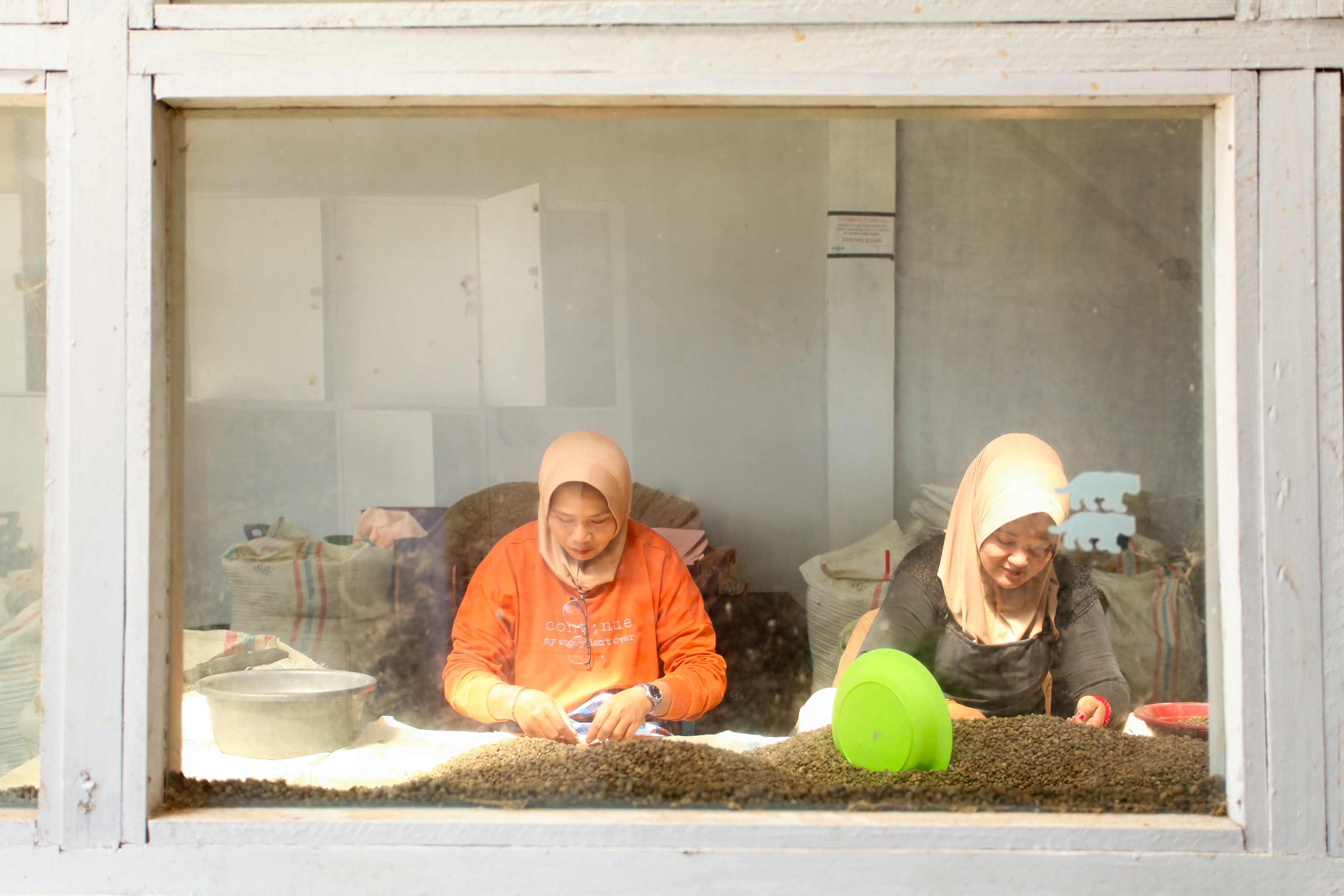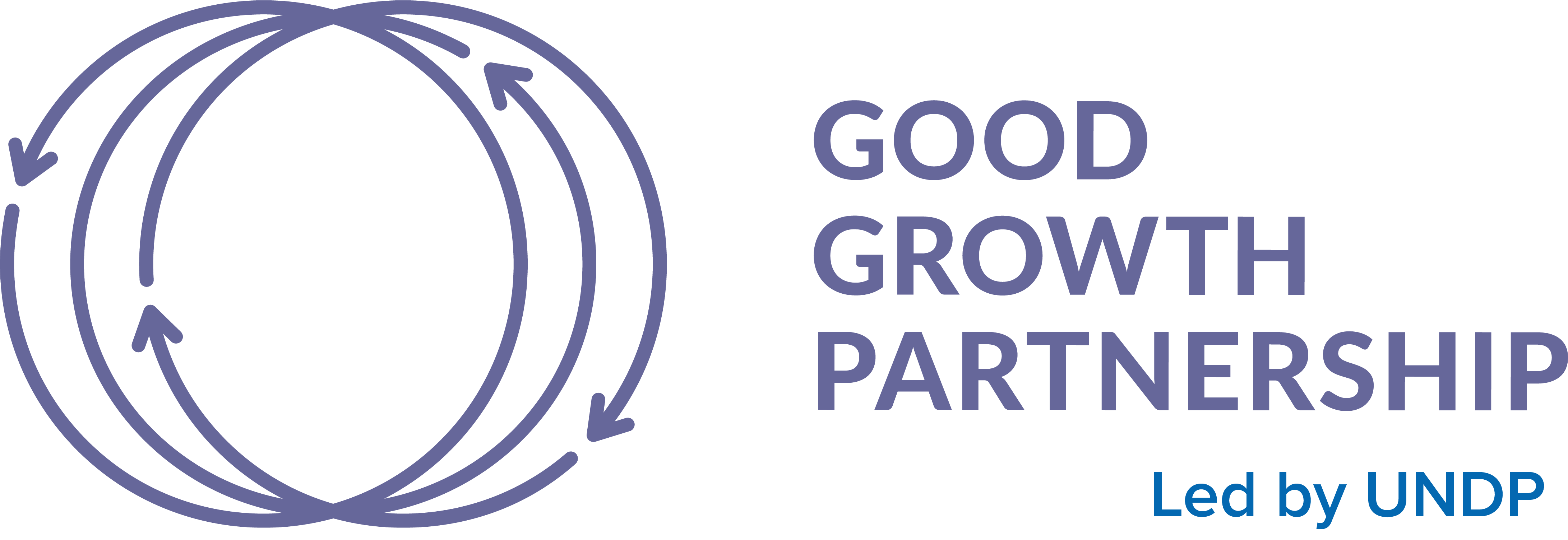
_____________
By Wiene Andriyana, United Nations Development Programme
When we landed in Takengon, Central Aceh, for a gender-focused field visit under the Food Systems, Land Use and Restoration (FOLUR) Project funded by Global Environment Facility (GEF), I didn’t expect to see so clearly how the future of sustainable coffee lies not just in the soil, but in the hands of women and youth who often go unseen.
Nestled in the cool, misty highlands of Gayo in Central Aceh, this region is home to one of Indonesia’s most prized commodities: Gayo Arabica Coffee. The mountainous terrain, rich volcanic soil, and crisp air at over 1,200 meters above sea level create the perfect microclimate for coffee cultivation. But behind this celebrated bean lies a deeper story, one of resilience, innovation, and the quiet leadership of women and young farmers.
Our mission in Central Aceh was simple in theory: collect localized gender data to support project planning. In practice, it became an immersion into the untold narratives of farming families who work under immense pressure: from pests like Helopeltis, to market volatility, and outdated systems that do not reflect today’s climate, economic, or social realities.
In the villages of Telege Sari and Gegarang, we met women who are not only tending coffee crops but also leading their households, quiet powerhouses at the heart of their communities. Despite their vital role in sustaining coffee production, they remain on the margins of formal support systems: excluded from agricultural training, cooperative leadership, and access to credit. Their farmer groups operate with minimal resources, and their ambitions are often stalled by deep-rooted structural barriers such as uncertain land rights, limited access to extension services, and a lack of financial literacy support.
Beyond gender barriers, climate stress also emerged as a recurring theme. Farmers in both villages spoke of rising temperatures and increasingly unpredictable weather patterns that have made their coffee plantations more prone to pests and diseases. Helopeltis, a notorious pest causing leaf and fruit damage, has become a major concern. While some farmers have begun planting shade vegetation, many expressed uncertainty and frustration, aware of the changes but lacking the tools to respond. They are seeing the changes but lack the knowledge and support to respond effectively.
Amid these challenges, however, a new generation of farmers is beginning to chart a different path, one that embraces innovation while staying rooted in tradition. The Millennial Coffee Farmer Group in Telege Sari village that we visited, for example, has reimagined the cultural concept of “Leles” coffee—once considered post-harvest scraps—as a niche product rooted in heritage and sustainability. Their approach blends ecological awareness with cultural pride, offering a fresh perspective on value creation in the coffee sector.
These youth are also leading a similar transformation through their “Alas Linge Coffee” coffee brand. While still relatively new and operating on a small scale, the group is already notable for its inclusive leadership—40 percent of its members are young women—who are using entrepreneurship as a tool to strengthen both local economies and gender equity.
In Gegarang Village, the establishment of a millennial farmer group is currently underway, inspired by the millennial farmers from their neighboring village, Telege Sari. One member has participated in FOLUR’s System Leadership Capacity Building Program, which is designed to help individuals navigate and lead within complex systems. This experience has contributed to the group’s ongoing efforts to grow their initiative and deepen their impact. Together, these youth-led movements reflect a quiet but powerful shift: communities listening to the land and to each other, reshaping the future of coffee from the ground up.
While such innovation offers hope, another reality remains: women’s roles in the coffee economy are still largely informal. Wives of local coffee collectors support transactions and bookkeeping are not yet formally recognized in cooperative structures. These gaps are where opportunity lies: to shift women from invisible labour into positions of visible and acknowledged leadership in the coffee value chain – an ambition that aligns strongly with the FOLUR Project’s commitment to gender equality and inclusive landscape governance. This potential came to life during our final and most inspiring stop at Kokowagayo, or Koperasi Kopi Wanita Gayo, a women-led coffee cooperative that is setting a powerful example of inclusive, gender-responsive coffee production.
Kokowagayo stands as a living example of what’s possible when women’s leadership is not only welcomed but institutionalized across an entire value chain. This is not a symbolic initiative. Kokowagayo is a fully women-led cooperative, deliberately designed to ensure that from farm to export, every step in the coffee supply chain is managed and driven by women.
What makes Kokowagayo remarkable is not just its operational success, but the social cohesion behind it. It starts with women farmers and cherry pickers who grow, harvest, and handle the crop. Their workflows into a value chain where women lead in processing, drying, grading, roasting, packaging, and sorting coffee beans—meticulously working toward Grade One quality, which Kokowagayo consistently delivers to buyers abroad. Even at the final stage—export and marketing—Kokowagayo’s women engage directly with buyers in Europe and North America, speaking the language of trade with clarity, professionalism, and pride.
The women we met spoke of the respect and encouragement they receive from their families, especially their husbands, who support logistics and administration while stepping back to let their wives lead. They acknowledged that their confidence and achievement were possible because of the respect, trust, and encouragement they received at home. Many husbands actively support the cooperative’s logistics, administration, and marketing functions, while stepping back to let their wives lead. Their shared pride has become one of Kokowagayo’s strongest foundations.
This gender-inclusive model is not only empowering, but also practical, scalable, and resilient. Kokowagayo is more than a successful cooperative, it is a source of learning and inspiration. For FOLUR Project, Kokowagayo offers tangible lessons in how to mainstream gender across all components: from enabling environment and commodities to governance and knowledge systems. It shows us that gender integration is not just a checkbox, it’s a catalyst for better productivity, stronger communities, and sustainable land use systems.
More broadly, Kokowagayo offers a replicable model for other programs and landscapes—both within and beyond Indonesia—that aim to promote equitable livelihoods and inclusive value chains. By connecting gender leadership to market competitiveness, and embedding social cohesion into business operations, Kokowagayo redefines what sustainability can look like in practice.
This visit reaffirmed that gender work is not about separating men and women, it’s about recognizing disparities and enabling equitable participation and leadership. Kokowagayo is proof that when women lead—from the roots of the coffee tree to the final export invoice—the entire community benefits, and the coffee value chain becomes stronger and more resilient.
Our field data from Central Aceh will now feed directly into FOLUR’s updated Gender Action Plan. But more importantly, it reinforces the direction we need to take: from theory to field, from participation to leadership, and from fragmented efforts to full-chain transformation. Because in places like Central Aceh, the future of inclusive, climate-resilient farming isn’t a distant vision. It’s already growing, in the hands of women and the aspirations of youth.
The energy and innovation we witnessed in youth-led groups like the Millennial Coffee Farmer Group with their Alas Linge Coffee initiative in Gegarang and Telege Sari villages are early signs of that future taking root. With support from FOLUR’s System Leadership Program, these young leaders are beginning to shape their own path in the coffee sector. FOLUR holds hope that these budding initiatives can grow into impactful, inclusive movements, perhaps one day standing alongside Kokowagayo as pillars of sustainable, gender-equitable coffee systems in Indonesia.
[Published on Aug. 18, 2025; originally published by United Nations Development Programme on Aug. 6, 2025]







